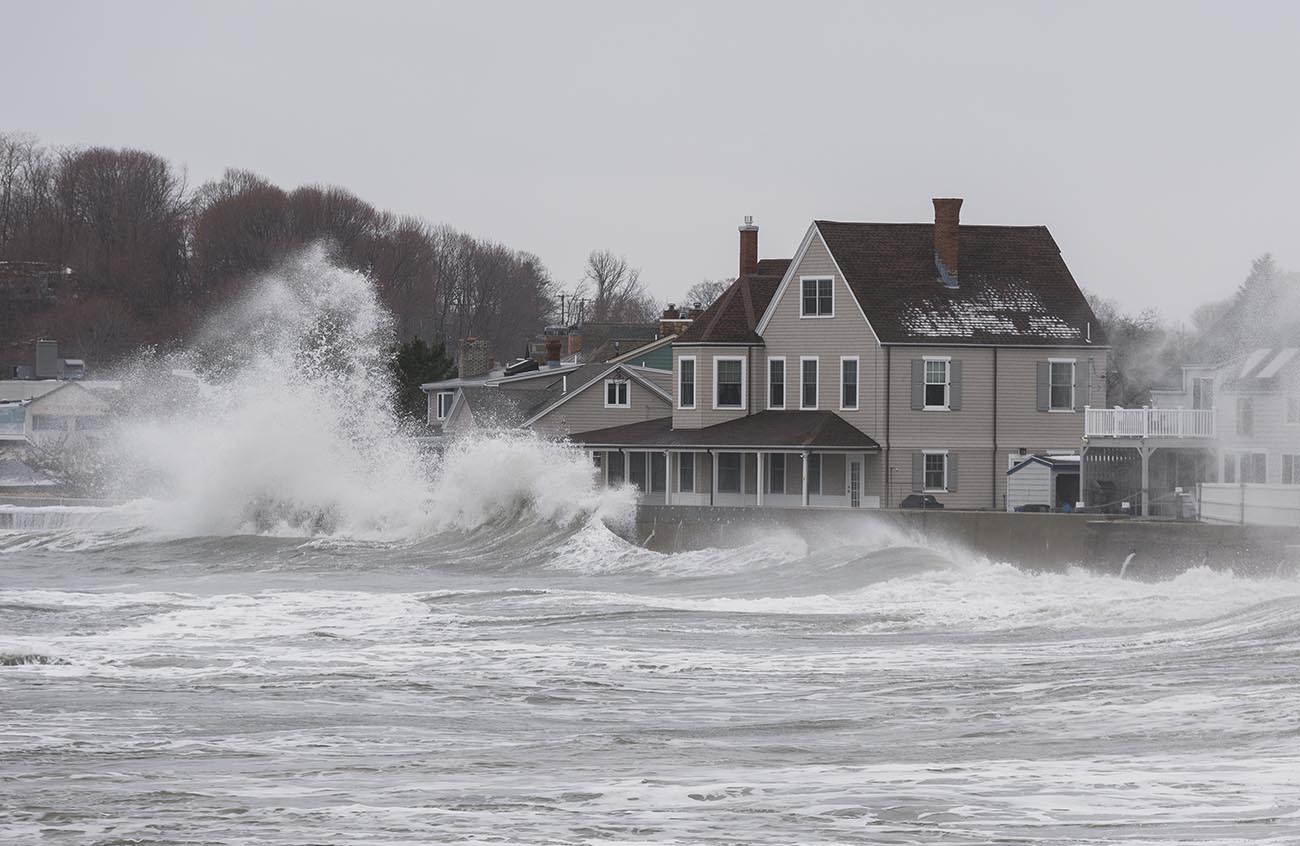NAHANT — The town’s Emergency Management Team met Wednesday night to discuss the town’s hazard-mitigation plan, which is aimed at mitigating the effects of coastal flooding.
This plan needs to be updated every five years to ensure the town remains eligible for state funding to complete certain projects included in the document. This process marks the second time the plan will be updated.
Emergency Management Director Dennis Ball and the senior environmental planner at the Metropolitan Area Planning Council (MAPC), Van Du, spoke about the importance of updating this plan on time, particularly in a coastal community like Nahant.
“It’s important that this document is up to date and is correct,” said Ball. “This document needs to be as real and true to our potential exposure as necessary.”
Priorities of the existing hazard-mitigation plan include completing the seawalls at 40 Steps and Tudor beaches; finishing the dredging project at Bear Pond; and reconstructing the drainage system at the Nahant Causeway in collaboration with the state Department of Conservation & Recreation (DCR).
The town is only eligible for federal funding for these projects if the plan is updated on time. Not only does the plan need to be updated, but it must meet the requirements set by the Federal Emergency Management Agency (FEMA); federal grants for these types of projects, which are aimed at mitigating the effects of natural disasters and hazards, are awarded through FEMA, according to the agency.
“We are very vulnerable to climate change and weather commissions here in Nahant,” said Board of Selectmen Chairman Josh Antrim. “Grants are going to be important to our town and to make us able to withstand these increasingly common severe storms and rising sea levels.”
The next step in the planning process is to develop a new hazard-mitigation strategy for the town. A final public meeting will be held in November or December to review a draft of the plan.
The plan has to be approved by the town, the Massachusetts Emergency Management Agency (MEMA) and FEMA. Once approved, it will remain in effect for five years. Hannah Chadwick can be reached at [email protected].

